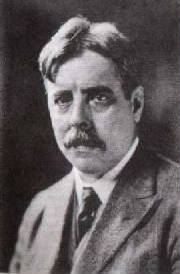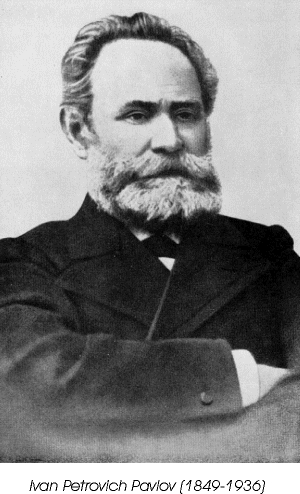|
Edward Thorndike
| Edward Thorndike |

|
Edward Thorndike was an American
psychologist born in 1874, who worked with animals and the learning process to bring to his theory of connectionism. Connectionism
was how Thorndike explained learning based n the connections between situations and responses. Thorndike also experimented
with puzzle boxes and developed Laws of Learning. With his puzzle box experiments
Thorndike developed trial-and-error learning (Learning based on the response tendencies that lead to success. The Laws of Learning can be defined as acts hat produce satisfaction in a given situation become associated with that
situation; when the situation recurs the act is likely to recur. From the Laws of Learning
Thorndike acquired the Law of Exercise (or the law of use and disuse). Thorndike’s
work allowed the learning theory to rise to prominence in American psychology and laid the foundation for behaviorism.
|
 |
 |
 |
| Ivan Pavlov |

|
|
 |
 |
 |
|
Ivan Pavlov
Russian physiologist and experimental psychologist. He was professor at the military medical academy and
director of the physiology department at the Institute for Experimental Medicine, St. Petersburg, from 1890. For his
work on the physiology of the digestive glands he received the 1904 Nobel Prize in Physiology or Medicine. Using the same
technique to create an artificial exterior pouch of the stomach, he experimented on nervous stimulation of gastric secretions
and thus discovered the Conditioned Reflex (Click link for more info: Conditioned Reflex), which has had widespread influence in neurology and psychology. The Conditioned Reflex demonstrated that learning
can take place if a behavior is reinforced.
|
 |
|
|
|

